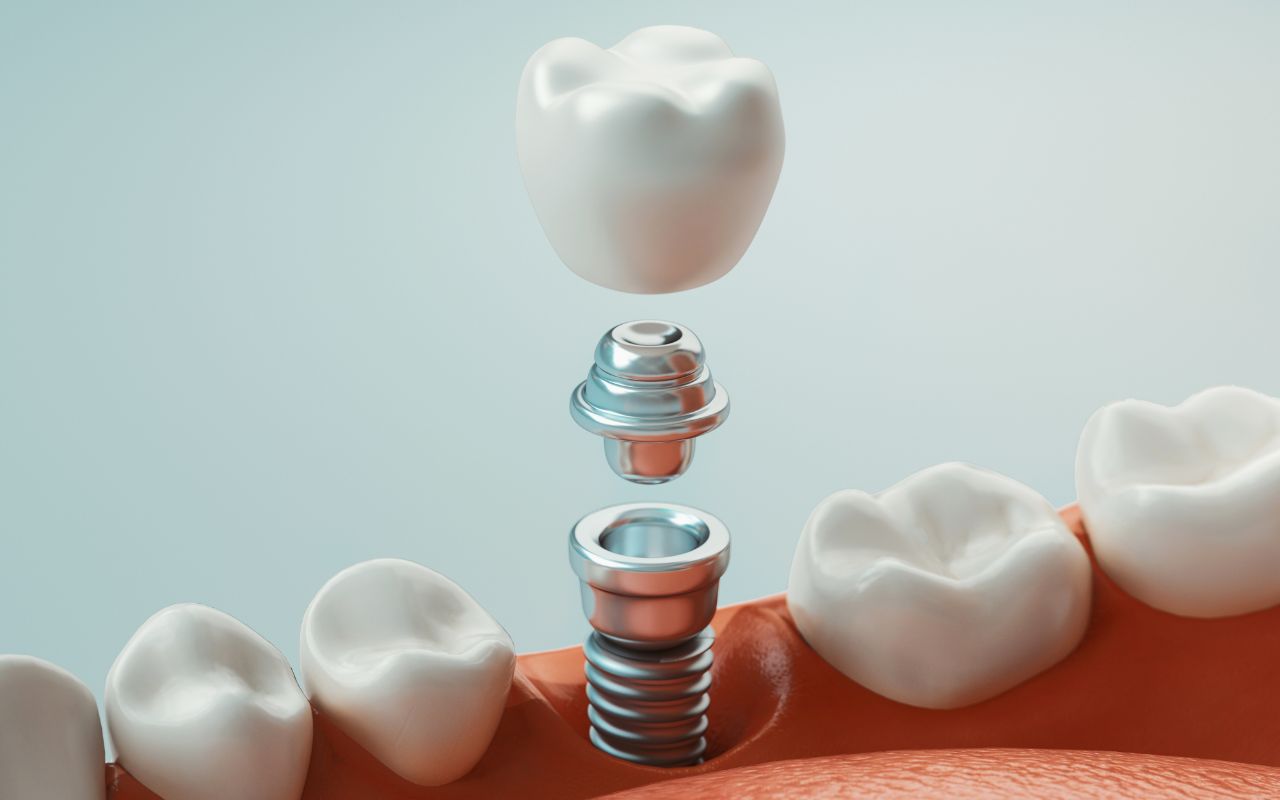Part 1: How Do Dental Implants Work to Restore Smiles?
There is nothing quite as stressful as a missing tooth—or several missing teeth.
Missing a tooth can significantly affect your bite, your speech, and of course, the aesthetics of your smile.
While a gap-toothed grin can be cute when you are young, most adults with missing or broken teeth struggle with how their teeth look and function.
Measures like dentures or dental bridges can correct the gaps, but they only go so far in repairing the damage, and, therefore, are more likely a temporary remedy.
Dental implants offer patients a truly permanent form of restoration by filling the gaps with teeth that look and act like the real thing.

What Are Dental Implants?
Dental implants are artificial tooth roots that are made of durable materials like titanium or zirconium.
These screw-like posts fuse with the bone, creating a solid support system for artificial crowns or bridges to replace the visible gaps above.
Dental implants operate and look just like regular teeth, ensuring functionality and appearance.
When Should I Get Dental Implants?
Dental implants can help patients who have:
- Missing, cracked, or broken teeth that cannot be repaired
- Impaired speech from missing or broken teeth
- A misaligned bite
- Concerns with using dentures or bridges
Patients who do not have issues with their gums are good candidates for dental implants, as gums and other oral tissues have to be healthy enough to tolerate the procedure.
Ideal candidates should be generally healthy and without any conditions that may affect how the jawbone heals.
In some cases, a bone graft on the jawbone may be necessary before the implants are placed to ensure there is enough bone to support the implants.
How Do I Prepare for Dental Implants?
Because the procedure involves the bone, dental implants can be a long-term process.
It can take between three and six months for the metal implant to fuse to the jawbone, and a few weeks longer to craft and place the crown.
There will be long waiting times where patients simply have to wait for the bone to finish healing. Patients must be willing to commit to this long-term time frame to ensure the best results.
However, this lengthy process means greater durability as opposed to other options, such as dentures. And with proper care, dental implants can last a lifetime.
Part 2: What is the Dental Implant Process Like?
Once you know that you are the right candidate for dental implants, you can start taking the steps towards replacing your missing teeth and completing your smile.
Getting dental implants is a process that takes a couple of months from start to finish and consists of three stages.
How Are Dental Implants Placed?
Dental implants are placed in three stages:
1. Inserting the Root
An incision is made in the gum, and a hole is drilled into the jaw to make space for the artificial root of the tooth. The titanium root is placed in the bone, and then you’re done with step one.
Don’t worry, inserting the root is always performed under anesthesia to numb the area and help make sure you are comfortable. You may experience some soreness as you heal, but the pain can be handled with over-the-counter pain medication.
2. Osseointegration
Next, you go through osseointegration. The osseointegration process is a healing period—which can last four to six months—where the metal implant root slowly grafts to the surrounding bone. This part of your implant journey is essential as it provides a solid foundation for your new tooth.
3. Installing the Tooth
Once your implant has become at home in your jaw, it’s time to place the prosthetic tooth. A crown restoration will be attached to the titanium implant and the abutment, ensuring a stable and secured tooth.
Your new tooth/implant should be secure and work just as well as natural teeth.
Is Healing After Dental Implants Painful?
Following your dental implant surgery, it is normal to experience some mild bruising and swelling; however, this usually only lasts for one week. Pain after dental implants should not be severe and can typically be managed with mild pain medications.
How Should I Take Care of My Dental Implants?
Dental implants work in much the same way as your natural teeth, and you will need to care for them just as you would your natural teeth.
There are many ways to take care of your implants and help ensure that they are long lasting. After you have gotten your dental implants, your dentist will provide you detailed instructions on how to take care of them. Failure to take good care of your implants can limit their longevity and result in additional dental problems.
Here are a few helpful tips on how to take good care of your dental implants:
- Make sure to see your dentist regularly
- Try to avoid teeth staining foods like coffee, soy sauce, or red wine
- Keep up with your dental hygiene
- Be aware and address bad dental habits, like teeth grinding
Staying on top of these can help you to maintain your dental implants and your natural teeth for years to come.
Want to Learn More?
If you are considering getting dental implants and would like to learn more about your options in Beverly Hills, California, please feel free to contact Dr. Sand at 310-273-0111 or fill out this contact form.
